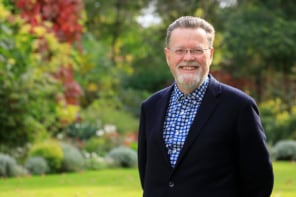
The inaugural Big Science Business Forum, which was held in Copenhagen this week, brought together 1000 scientists, engineers, business executives and government officials from 29 European nations to discuss the commercial opportunities for companies in big-science facilities across the continent. The European big-science market is big – it’s worth an estimated €12bn – but companies are often put off because each facility has its own complicated and time-consuming procurement rules and quality standards.
So the meeting was an attempt to create a more transparent and efficient big-science market in Europe by showing firms what opportunities are on offer and getting them talking to people form big-science facilities. But it left me wondering why the UK would want to quit the European Union (EU) when closer co-operation and freedom of movement of scientists are surely key to scientific and technological innovation in Europe of the kind espoused at the meeting.
My colleague Margaret Harris and I therefore put the following question to five of Europe’s top scientific leaders.
What are the threats to researchers and companies from Britain leaving the EU?
Carlos Moedas, EU commissioner for research, science and innovation
I think we will all be affected by that decision and that’s why we’re working so hard to find a solution for the future. I think the wish of all of us from the EU side and the UK side is that we find a solution for a future relationship. I cannot imagine that we will not find a solution so I am positive we are going through this phase of basically settling the accounts – what we call in our jargon the divorce bill. But then after that we will have to sit down and develop the relationship we want. And I hope that science and innovation will be part of that. But there’s nothing more I can tell you at the moment because there’s nothing more to tell.
John Womersley, director-general, European Spallation Source
There are two short-term issues. One concerns access to talent. A loss of freedom of movement, which until now has been a pre-requisite for membership of the EU’s Framework programmes, could make it harder for EU scientists to work in the UK and also for British researchers to study and work abroad.
The other concerns funding. The UK has been very good at winning grants, particularly from the European Research Council, and some universities have come to see it as a steady source of income that can make up for relatively flat funding from the research councils. If funding from the EU is cut off, that could damage UK research. The government has promised to more than make up for any potential shortfall from Europe by giving extra cast to UK Research and Innovation (UKRI) but much of that work is targeted at industrial and applied research so Brexit could mean less money for individual principal investigators doing basic research.
Longer term, Brexit could affect Britain’s ability to take part in decisions about future European projects and the overall direction of international projects. Many European scientific bodies, such as CERN, the ESS and the European Space Agency, are intergovernmental organisations and so in principle won’t be affected by Britain leaving the EU. But if the UK is “semi-detached” from international networks, science could suffer unless other networks are in place.
Brexit could affect Britain’s ability to take part in decisions about future European projects.
John Womersley, Director General, European Spallation Source
Many scientists in the rest of Europe are curious about the UK’s approach to Brexit because science has not been high on the agenda. Similarly, many UK scientists don’t look forward to the inevitable questions about Brexit because they don’t have any good answers. I’m really hoping we start to hear more from Mark Walport when he takes over as head of UKRI next month. This isn’t about lobbying for universities as a special interest group. Science and innovation are key to the future of everyone in Britain. It’s really important not to screw this up!
Xavier Barcons, director-general, European Southern Observatory
Brexit means no change for us. We are totally independent of the EU – I mean, we have close links, we try to work together with them and talk to each other and so on, but we are totally independent. So, I expect that there will be no changes in relation to UK companies and the government in terms of anything related to ESO.
Johann-Dietrich Wörner, director-general, European Space Agency
At a fundamental level, Brexit is no issue for us, because the UK remains an ESA member state. There are some issues concerning, for instance, working arrangements and working permissions for UK nationals at ESA, but I am sure these will be solved within a couple of months, because they have to be. Of course, we would like the UK to be part of other activities as well, and I am fighting like hell to get all of these solutions, but for us it’s not that big an issue.
I agree it is an issue [for the wider research community and companies], though. If you apply for EU funding to do research, it is an issue. Also, at ESA we have the Galileo programme and the Copernicus programme that are financed by the EU, and whenever we have a UK company in to do work on those projects, it will be a special problem in the future, because the EU may forbid that money from going to British companies. It is the EU saying that, not us; we at ESA would be fine with it, but if it’s EU money we might be not allowed to give it to a UK company. I hope that this will be clarified very soon by the discussion between UK and Brussels.
I am a convinced European. I am very unhappy about the developments we are seeing right now.
Johann-Dietrich Wörner, Director General, European Space Agency
I am a convinced European. I am very unhappy about the developments we are seeing right now, and the UK is just one example. Having a “United States of Europe” would be still my dream, but what I am doing is the “United Space of Europe”, and that means I try to cover all the different actors and collect them under the roof of ESA to work together. And it’s working. In ESA, the European spirit is 100% there.
Richard Cobben, head of ITER Delivery Department, Fusion for Energy
So far they [the UK] have communicated that they are still interested in participating in ITER. It’s fully under discussion but the first impression is that there won’t be a big change, let’s say closing down or not participating any more. They are willing to continue on this development. But again, discussions are ongoing. Initially it was some kind of a shock but people think the future looks reasonably stable and good so [the issue] has disappeared again. But nothing is decided yet but it does have an impact on British people working for us. It doesn’t have to have an impact but people are starting to wonder what does it mean for me.



